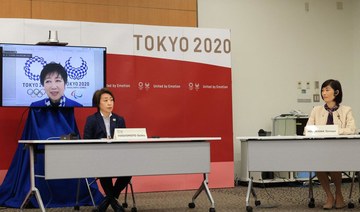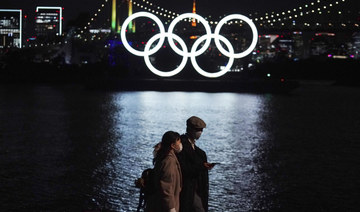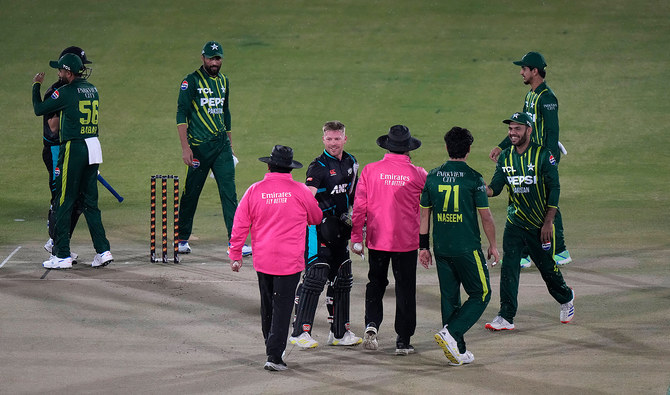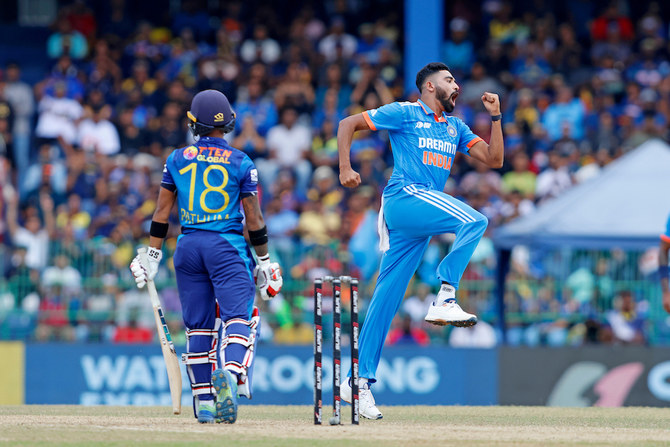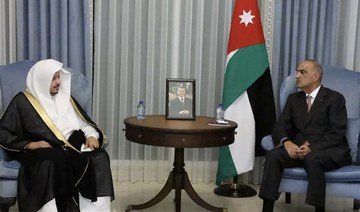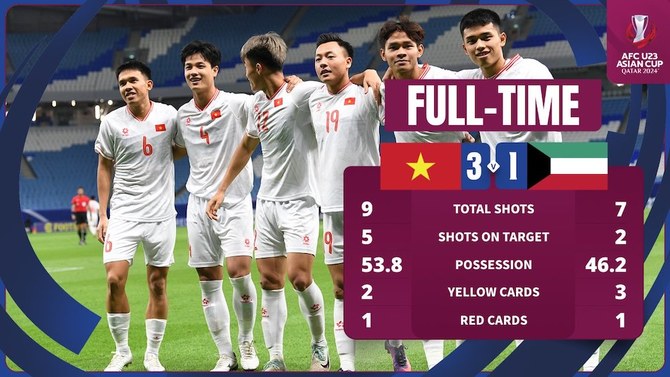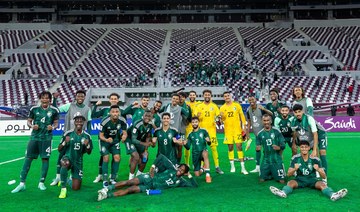TOKYO: A western Japanese city canceled the Tokyo Olympics torch relay over spiking coronavirus cases on Wednesday, fueling fresh fears about whether the pandemic-postponed Games should go ahead with just 100 days until the opening ceremony.
Even as Tokyo unveiled installations featuring the Olympic rings and mascots to celebrate the 100-day milestone, organizers face monumental challenges as virus surges.
Organizers have barred overseas fans and postponed test events, but they insist preparations are on track.
Cancellation is “certainly not” on the table, International Olympic Committee (IOC) Vice President John Coates told reporters on Wednesday.
“The Tokyo Games will be the light at the end of the tunnel.”
For organizers, there are some causes for optimism.
The Olympic torch is on its way across Japan, despite being forced off public roads in the Osaka region where it was being carried around a closed circuit Wednesday with the general public kept away.
And vaccination programs are ramping up in many countries, with some athletes already inoculated.
Japan won’t require Olympic participants to be vaccinated, but the IOC is encouraging jabs and has secured Chinese-made doses for athletes in countries without access to them.
In Japan, sports events are still on, with crowd numbers capped, and fans have become used to virus rules that will be implemented at this summer’s Games, including a ban on cheering.
North Korea’s decision to skip Tokyo 2020 over virus concerns has not prompted a rush for the exits, with athletes mostly seeming impatient for a return to the international stage.
“These past 14 months have been very motivating for all of us,” five-time Olympic gold medallist swimmer Katie Ledecky said last week.
“Once we get there we really want to show the world all the work that we’ve put in.”
In Japan, a historic golf Masters win by Hideki Matsuyama and swimmer Rikako Ikee’s comeback, just two years after being diagnosed with leukemia, are offering a feel-good factor.
But there’s no disguising the challenges more than a year after the historic postponement.
COVID-19 surges across Japan have forced the government to tighten restrictions only weeks after they were lifted and on Wednesday, the head of Tokyo’s Medical Association warned the rising infections could make holding the Games “really difficult.”
The governor of western Ehime region announced the public torch relay will be scrapped in the city of Matsuyama, citing the “extreme pressure” on local medical services from rising cases.
Coates acknowledged the situation, but insisted organizers and Olympic officials have prepared for “the worst possible scenarios.”
“Of course we’re concerned, of course safety remains our priority, but we believe that we’re prepared for the worst situations.”
Organizers have released “playbooks” outlining anti-virus measures, which will be updated later this month.
Tens of thousands of athletes and other Olympic participants arriving from overseas will be able to skip quarantine, and are not required to show proof of vaccination.
But athletes will be asked to limit their movements, stay only at the Olympic village during their events and face regular virus testing.
Overseas fans have already been barred from the Games, and a decision on domestic spectator numbers could come in April.
Still, the atmosphere will be far from the usual rowdy celebrations, and it remains unclear how strong demand for tickets will be when they finally go back on sale.
Polls show most Japanese back either a further postponement or cancellation, but the numbers in favor of holding the Games this summer have crept up, to around 27 percent in March, from just 11 percent in January.
In Tokyo, residents expressed mixed feelings about the prospect of the Games.
“In these dark times, anything that will brighten up the day, like getting a gold medal, or anything that can energise will be appreciated,” 27-year-old Kenzo Tanaka told AFP.
But Midori Hinamoto, 65, said she felt “the situation is uncertain.”
“I think the Olympics should be cancelled, if that’s possible.”
Olympic organisers acknowledge the mood, but said they expect it to shift once athletes take the stage.
“Every time, we are inspired by their strength and resilience, and that will be truer than ever this year,” they said in response to questions from AFP.




